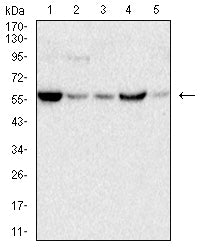
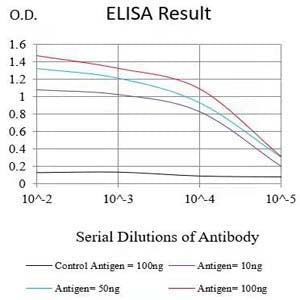
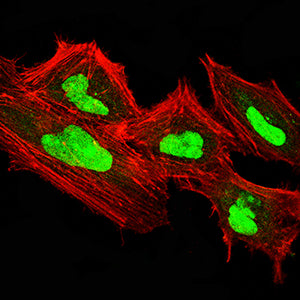
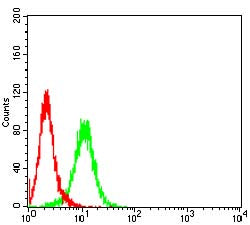
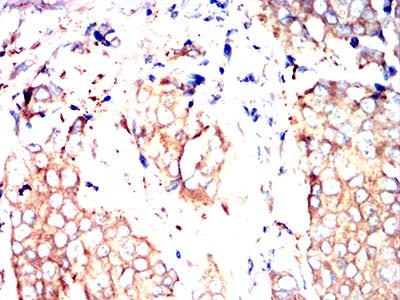
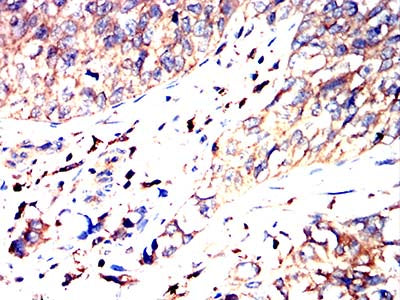
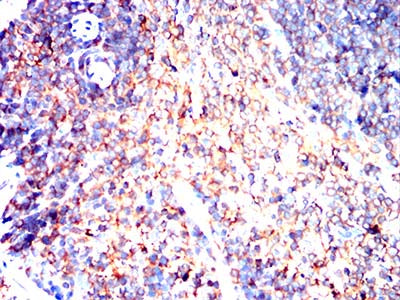
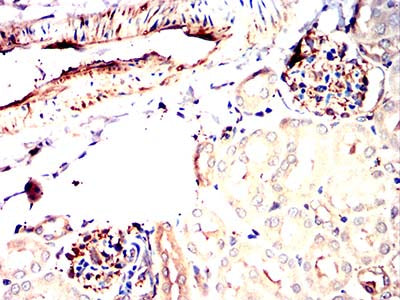
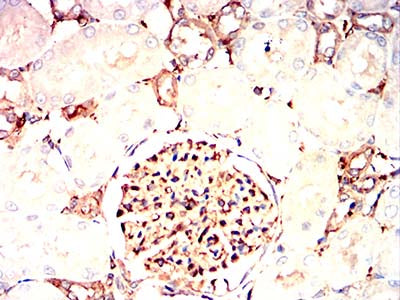
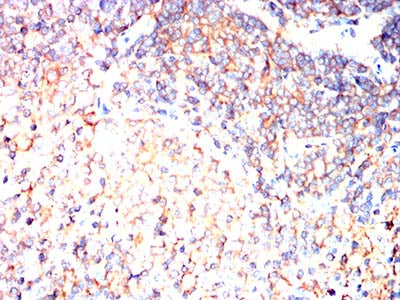
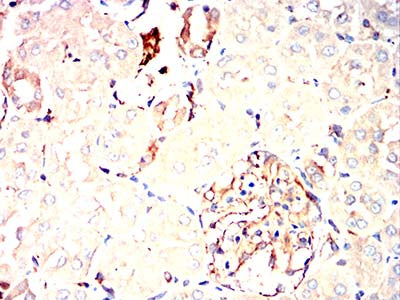
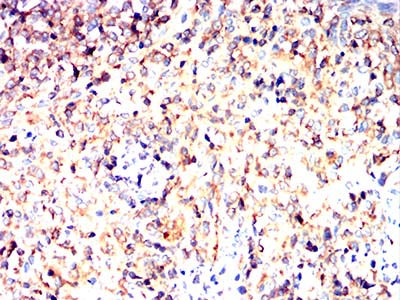
| WB | 1/500 - 1/2000 | Human, Mouse, Monkey, Rat |
| IF | 咨询技术 | Human, Mouse, Monkey, Rat |
| IHC | 1/200 - 1/1000 | Human, Mouse, Monkey, Rat |
| ICC | 1/200 - 1/1000 | Human, Mouse, Monkey, Rat |
| FCM | 1/200 - 1/400 | Human, Mouse, Monkey, Rat |
| Elisa | 1/10000 | Human, Mouse, Monkey, Rat |
| Aliases | ALSFTD; DENND9; FTDALS; DENNL72; FTDALS1 |
| Entrez GeneID | 203228 |
| clone | 6D6F12 |
| WB Predicted band size | 54.3kDa |
| Host/Isotype | Mouse IgG2b |
| Antibody Type | Primary antibody |
| Storage | Store at 4°C short term. Aliquot and store at -20°C long term. Avoid freeze/thaw cycles. |
| Species Reactivity | Human, Mouse, Monkey, Rat |
| Immunogen | Purified recombinant fragment of human C9orf72 (AA: 110-199) expressed in E. Coli. |
| Formulation | Purified antibody in PBS with 0.05% sodium azide |
+ +
以下是3篇关于C9orf72抗体的关键文献摘要:
1. **文献名称**: *Antibody recognition of the C9orf72 repeat expansion in ALS and FTD*
**作者**: Mori K, et al.
**摘要**: 首次报道针对C9orf72基因GGGGCC重复扩增产生的RNA病灶及二肽重复蛋白(DPRs)的特异性抗体,验证其在ALS/FTD患者脑组织中的病理沉积。
2. **文献名称**: *Distribution of dipeptide repeat proteins in cellular models and C9orf72 mutation cases suggests link to transcriptional silencing*
**作者**: Schludi MH, et al.
**摘要**: 通过多种C9orf72抗体揭示DPRs在患者神经元中的核内聚集模式,提出其可能通过干扰RNA代谢导致神经退行。
3. **文献名称**: *Poly(GR) and poly(PR) antibodies differentially target C9orf72-related pathologies*
**作者**: Gendron TF, et al.
**摘要**: 比较不同抗体对C9orf72重复扩增产生的多聚甘氨酸-精氨酸(GR)和脯氨酸-精氨酸(PR)蛋白的特异性检测,揭示抗体选择对病理研究的重要性。
注:以上文献发表于2013-2017年间,涉及抗体开发和应用,主要发表于*Science*、*Acta Neuropathologica*及*Neuron*等期刊。如需具体DOI或更新研究可进一步补充。
**Background of C9orf72 Antibodies**
C9orf72 antibodies are immunological tools designed to detect the protein product of the *C9orf72* gene, which is implicated in neurodegenerative diseases, particularly amyotrophic lateral sclerosis (ALS) and frontotemporal dementia (FTD). The *C9orf72* gene contains a hexanucleotide repeat expansion (GGGGCC) in its non-coding region, which is the most common genetic cause of familial ALS and FTD. This mutation leads to loss of functional C9orf72 protein, toxic RNA foci, and dipeptide repeat proteins (DPRs) through repeat-associated non-AUG (RAN) translation.
C9orf72 antibodies are primarily used in research to study the gene’s normal physiological role and disease mechanisms. They target specific regions of the C9orf72 protein, such as its isoforms or pathological aggregates. For example, some antibodies detect endogenous C9orf72 in human tissues, while others recognize DPRs like poly-GA, poly-GP, or poly-PR. These tools help elucidate how C9orf72 loss-of-function or gain-of-toxic-function contributes to neuronal degeneration.
Challenges in antibody development include the low abundance of C9orf72 protein in cells and the heterogeneity of pathological aggregates. Commercially available antibodies vary in specificity, requiring validation via knockout controls or epitope mapping. While C9orf72 antibodies are critical for preclinical studies, their diagnostic utility remains limited, as clinical diagnosis still relies on genetic testing for the repeat expansion. Ongoing research aims to refine these antibodies for therapeutic targeting or biomarker development.
×